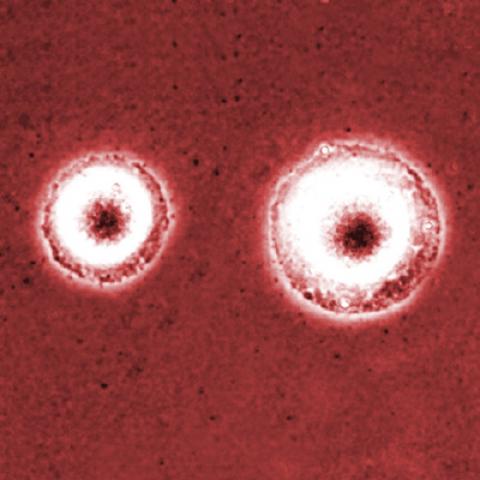MycoSynVac: synthetic biology, paying attention to ethical issues

Vaccines have had broad medical impact, but existing vaccine technologies and production methods are limited in their ability to respond to certain pathogens. Other hurdles are due to difficulties in large scale production. MycoSynVac project proposes a new way for developing vaccines, by using of cutting-edge synthetic biology methodologies to engineer Mycoplasma pneumoniae as a universal chassis for vaccination.
Mycoplasmas are resistant to many of the common antibiotics due to their lack of cell wall. They have a wide variety of hosts, including humans, mammals, reptiles, fish, arthropods and plants. Every year, infections caused by Mycoplasmas in poultry, cows, and pigs, result in multimillion euros losses in USA and Europe.
M. pneumoniae is an ideal starting point for designing such a vaccine chassis due to its small genome (860 kb) and because it is probably the organism with the most comprehensive systems biology data acquired so far. By genome comparison, metabolic modeling and rationally engineering its genome, we will create a vaccine chassis that will be introduced into an industrial pipeline. The final results should provide a cheap and fast production process and a universal Mycoplasma chassis that could be used in a pipeline to vaccinate against Mycoplasma species, as well as any pathogen. In a first stage vaccine will face veterinary infections (i.e. pigs and cattle), but in the future they may also be used in human health.
The partners, aware of the concern that synthetic biology raises, are very sensitive to project ethical implications and maintain a continuous dialogue with public opinion, including the general public, scientists and policy makers. As an example, we are organizing some Science Cafés in order to explain the main advantages of synthetic biology applied to vaccines. So far, two of them have been organized, one in Barcelona and one in Amsterdam.
It is expected that by year 2020, we will be able to produce a serum (animal) free vaccine, at a reduced cost and with an improved protection profile (hopefully one shot protection). Stay tuned at www.mycosynvac.eu.
